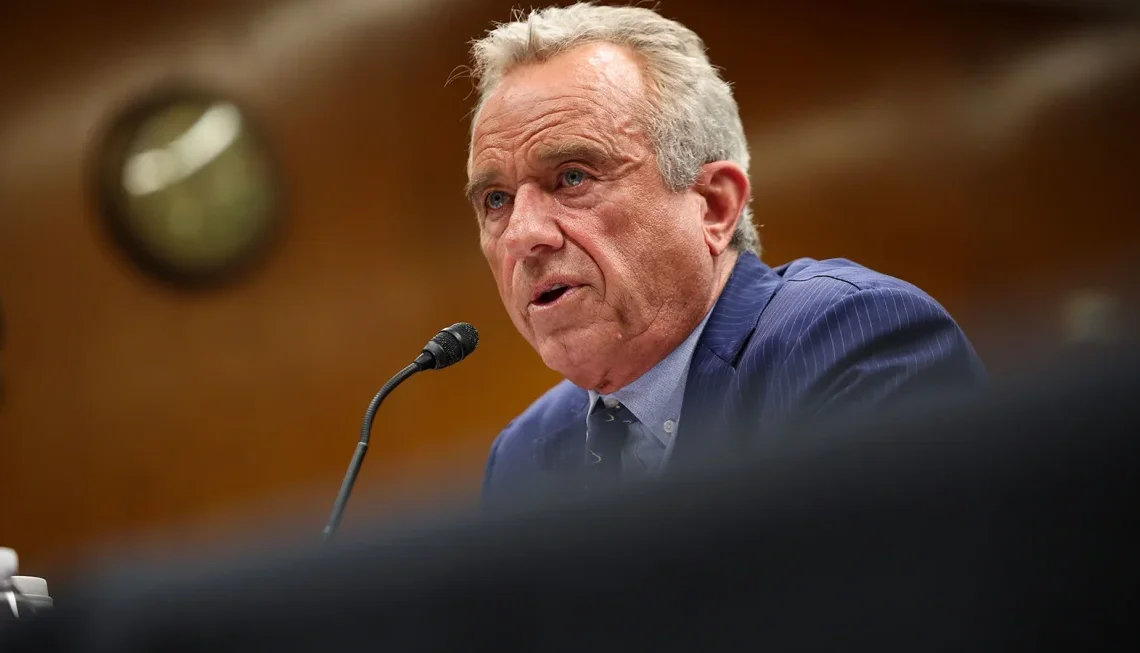In a controversial and sweeping move, Robert F. Kennedy Jr. removed all current members of the Centers for Disease Control and Prevention’s (CDC) vaccine advisory committee. This unprecedented decision, which marks the most dramatic change to U.S. vaccine oversight in decades, is already sending shockwaves through the public health community.
The RFK Jr. CDC shakeup raises fundamental questions about the future of immunization policy in the United States. Is it a bold step toward transparency and reform, or a destabilizing blow to scientific integrity?
Understanding the CDC Vaccine Advisory Committee
What the Committee Does
The CDC’s Advisory Committee on Immunization Practices (ACIP) plays a vital role in shaping national vaccine policy. Composed of immunologists, pediatricians, epidemiologists, and public health experts, the committee reviews clinical data to make science-based recommendations on vaccine schedules, safety protocols, and public health guidance.
Their decisions impact millions of Americans, from childhood immunization schedules to emergency responses during pandemics.
Who Was on the Committee?
Before the shakeup, the advisory panel included highly regarded professionals with decades of experience in vaccine development and infectious disease control. These members contributed to evidence-based decisions on COVID-19 vaccines, flu shots, and routine immunizations for preventable diseases such as measles and polio.
Inside the RFK Jr. CDC Shakeup
Full Removal of the Panel
The RFK Jr. CDC shakeup became public after the administration confirmed that all existing members of the vaccine advisory committee had been dismissed. While no formal explanation was provided initially, insiders report that the decision was intended as part of a broader overhaul of the CDC’s public health approach.
The move drew immediate concern from CDC staffers and former committee members, many of whom were blindsided by the decision.
Rationale Behind the Move
RFK Jr., long known for his skepticism toward vaccines and pharmaceutical influence, has repeatedly accused the CDC of prioritizing industry interests over public safety. His supporters view the shakeup as a necessary reset—an attempt to rebuild the advisory system with voices that challenge what they see as entrenched groupthink.
Critics, however, warn that this action could undermine years of scientific progress and public trust.
Reactions from Health Experts and Lawmakers
Public Health Community Responds
Medical professionals and public health organizations reacted swiftly. The American Academy of Pediatrics and the Infectious Diseases Society of America issued statements condemning the RFK Jr. CDC shakeup, arguing that removing the advisory panel weakens America’s ability to respond effectively to public health threats.
Many warned that the absence of expert oversight could lead to delays in vaccine rollouts or biased decision-making.
Political and Media Reactions
Lawmakers are deeply divided. Some Republican representatives applauded the move as a long-overdue check on federal health agencies. Meanwhile, Democrats and centrists accused RFK Jr. of politicizing science and weakening the nation’s ability to combat infectious diseases.
Major media outlets offered varied coverage, with headlines ranging from “Populist Reform or Public Health Crisis?” to “CDC Under Siege.”
What Happens Next for Vaccine Oversight
Replacing the Advisory Panel
No replacement committee has yet been appointed, leaving a critical gap in vaccine policymaking. RFK Jr. has signaled that future appointees will include individuals who support “health freedom” and “informed consent” principles—language often used by vaccine skeptics and alternative medicine advocates.
Experts fear this could further polarize an already fragile public health landscape.
Impact on Ongoing Vaccine Policies
The most immediate concern is how the RFK Jr. CDC shakeup will affect existing vaccine schedules and future approvals. Programs for childhood vaccinations, routine adult immunizations, and pandemic response strategies could all face delays or policy shifts.
Health departments across the country are now in a holding pattern, unsure whether to continue following old guidance or wait for new recommendations.
A Turning Point for U.S. Vaccine Policy?
Breaking from Tradition
Previous administrations—Democratic and Republican alike—have maintained a strong separation between scientific advisory bodies and political leadership. The RFK Jr. CDC shakeup breaks from that norm in an unmistakably aggressive fashion, reshaping how public health decisions are made.
Public Trust on the Line
With vaccine hesitancy already on the rise, many experts warn that removing respected scientific voices from the CDC could further erode public confidence. At a time when misinformation spreads rapidly and trust in institutions is under strain, this move may widen the divide between health authorities and the communities they serve.
Conclusion
The RFK Jr. CDC shakeup represents a seismic shift in how vaccine policy is managed in the United States. Whether viewed as a necessary correction or a reckless gamble, its impact will be felt far beyond the walls of the CDC. The path forward is uncertain, and the stakes—public health, scientific integrity, and public trust—could not be higher.
Only time will tell whether this marks the start of true reform or a dangerous detour from evidence-based decision-making.
Don’t Miss Out! Get the Latest News, Tips, and Updates from Us!


